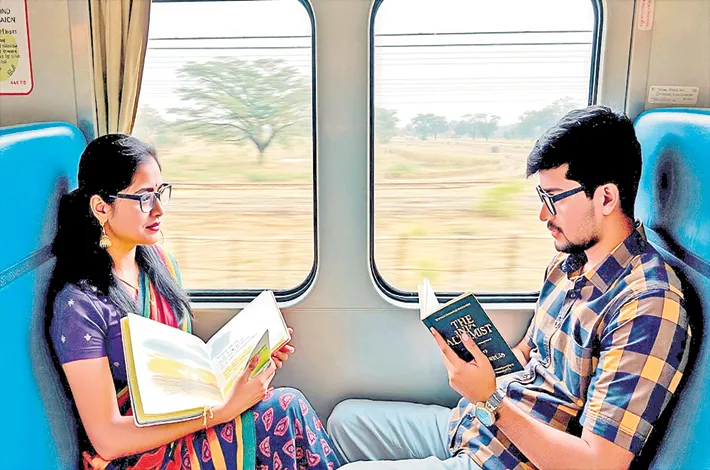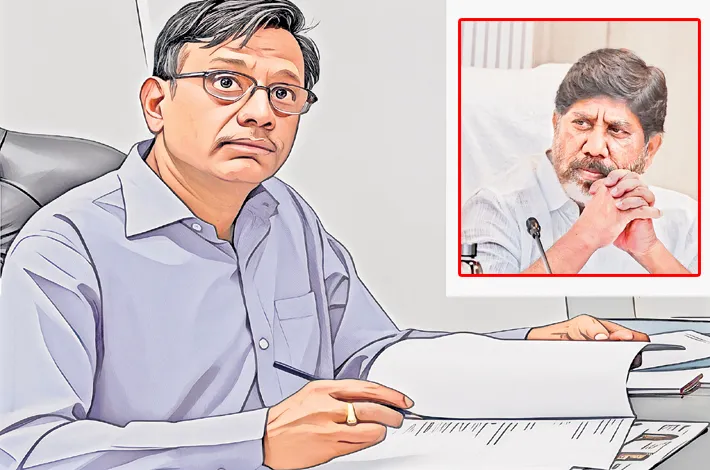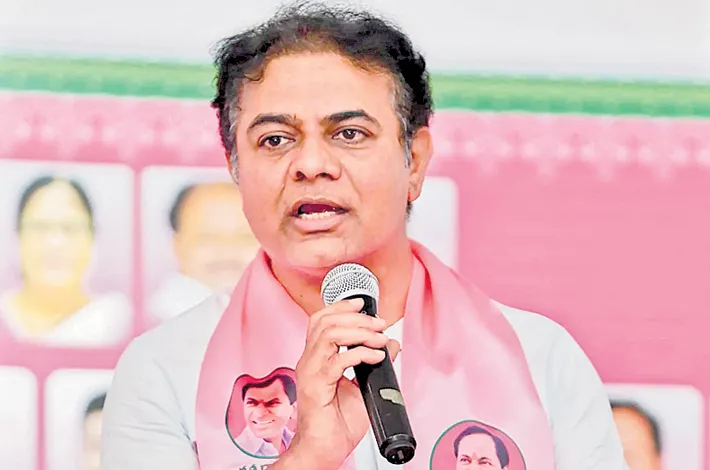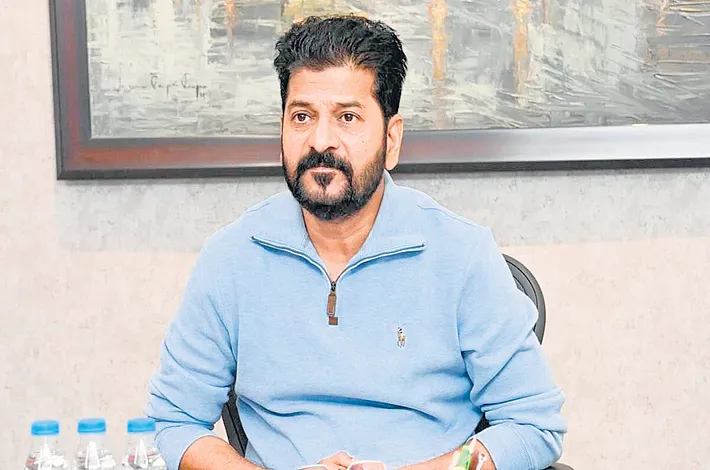A Journey front here to Forever
29-10-2025 12:00:00 AM

The train’s rhythmic clatter filled the air as the Hyderabad-Jhansi Express sped through the Indian countryside. Kamilini, a 22-year-old with bright eyes and a penchant for sketching, sat by the window, her sketchbook open to a half-finished drawing of a sunset. She was heading to Jhansi to visit her grandmother, a trip she made every summer. Across from her, a young man in his mid-twenties, Viswas Purohit, adjusted his glasses and flipped through a worn copy of The Alchemist. His quiet demeanor and thoughtful gaze intrigued Kamilini, though she hadn’t yet found a reason to strike up a conversation.
The train jolted, and Viswas’s book slipped from his hands, landing near Kamilini’s feet. She picked it up, smiling softly. “Good choice,” she said, handing it back. “Paulo Coelho has a way of making you believe in destiny.”
Viswas’s eyes lit up. “You’ve read it?” he asked, his voice warm with surprise. That simple exchange sparked a conversation that flowed effortlessly. They talked about books, dreams, and the little quirks of life. Kamilini learned that Viswas was a civil engineer, traveling to Jhansi for a bridge construction project. He spoke passionately about building structures that connected people, his words laced with quiet conviction. She shared her love for art, describing how she captured fleeting moments in her sketches.
As the train crossed the Deccan Plateau, their connection deepened. They shared snacks—her spicy Hyderabad biryani and his homemade parathas—and laughed over childhood stories. By the time the train pulled into Jhansi station at dusk, they were reluctant to part. Viswas hesitated, then scribbled his phone number on a piece of paper. “If you’re ever near Hoshangabad, let me know,” he said, referring to his hometown on the banks of the Narmada River. Kamilini tucked the paper into her sketchbook, her heart fluttering with possibility.
Over the next few months, their friendship blossomed through late-night phone calls and long letters. Kamilini sent him sketches of Jhansi’s forts, while Viswas mailed her photographs of the Narmada’s serene banks, its waters reflecting the golden hues of dawn. Their bond grew stronger with every shared thought, every whispered dream. When Kamilini’s grandmother fell ill, Viswas took a week off to visit her in Jhansi, bringing comfort and quiet strength. He sat by her side, holding her hand as she worried, and Kamilini realized she was falling in love.
A year after their train journey, Viswas invited Kamilini to Hoshangabad. She arrived on a crisp autumn morning, the Narmada sparkling under the sun. Viswas took her to a quiet spot by the river, where ancient trees cast dappled shadows on the water. They walked barefoot along the banks, the cool water lapping at their feet. “This river,” Viswas said, “has seen centuries of stories. I want ours to be one of them.” He pulled out a small ring, simple yet elegant, and asked her to marry him. Tears welled in Kamilini’s eyes as she nodded, her heart full.
Their wedding was a joyous affair, held on the banks of the Narmada. Kamilini wore a red lehenga, her hands adorned with henna patterns she’d designed herself, while Viswas looked dashing in a sherwani. Friends and family gathered under a canopy of marigold flowers, the river flowing gently beside them. As they exchanged vows, the Narmada seemed to bless their union, its waters shimmering in the evening light.
They settled in Hoshangabad, in a cozy house with a veranda overlooking the river. Kamilini turned a corner of their home into an art studio, where she painted vibrant canvases inspired by the Narmada’s beauty and their love. Viswas continued his work as an engineer, designing bridges that connected not just places but people’s lives. Their days were filled with simple joys—morning walks by the river, evenings spent reading to each other, and quiet moments watching the sunset paint the sky in hues of orange and pink.
Their love grew deeper with time, rooted in mutual respect and shared dreams. They faced challenges together—monsoons that flooded the riverbanks, moments of doubt when work kept them apart—but their bond remained unshakable. Kamilini’s paintings began to gain recognition, exhibited in galleries across Madhya Pradesh, while Viswas’s bridges became symbols of progress in the region. They supported each other’s ambitions, celebrating every milestone with laughter and love.
Years later, as they sat on their veranda, now with streaks of gray in their hair, Kamilini sketched Viswas as he gazed at the Narmada. Their children played nearby, their laughter echoing over the water. “Do you ever think about that train ride?” Kamilini asked, her pencil pausing.
Viswas smiled, taking her hand. “Every day. It was the start of everything.”
Their life by the Narmada was a tapestry of love, woven from that chance meeting on a train, a friendship that grew into a lifelong partnership, and a home filled with warmth and creativity. The river, ever-present, flowed on, carrying their story into eternity.








